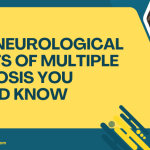**Table of Contents**
- Understanding Parkinson’s Disease
- Stay Active: Exercise and Physical Therapy
- Nutrition Matters: Eating Well
- Organize Your Space: Home Modifications
- Seek Support: Building a Support Network
Understanding Parkinson’s Disease
Parkinson’s Disease (PD) is a progressive neurological disorder that primarily affects movement. It occurs when dopamine-producing nerve cells in the brain deteriorate, leading to symptoms such as tremors, stiffness, and difficulties with balance and coordination. Understanding the intricacies of Parkinson’s is crucial for effective management. Resources like the Parkinson’s Foundation provide comprehensive insights into the condition and its progression.
Recent advancements in research have highlighted the importance of early diagnosis and intervention in improving quality of life. According to the Top 5 Benefits of Early Intervention in Neuro Care, timely support can significantly affect disease management and symptom relief.
Stay Active: Exercise and Physical Therapy
Regular physical activity is essential for managing Parkinson’s symptoms and enhancing overall quality of life. Exercise can improve flexibility, strength, and balance, reducing the risk of falls. Here are some effective types of exercise:
| Type of Exercise | Benefits |
|---|---|
| Aerobic Exercise (walking, cycling) | Improves cardiovascular health and endurance |
| Strength Training (using weights) | Builds muscle strength and boosts metabolism |
| Balance Exercises (tai chi, yoga) | Enhances stability and reduces fall risk |
| Stretching | Increases flexibility and decreases stiffness |
Consulting a physical therapist who specializes in PD can provide a tailored exercise plan. The American Physical Therapy Association offers a directory to find specialized therapists.
FAQs
Q: How often should I exercise?
A: Aim for at least 150 minutes of moderate aerobic activity each week, along with strength training on two or more days.
Nutrition Matters: Eating Well
A balanced diet plays a vital role in managing Parkinson’s Disease. Certain foods can support brain health and overall well-being:
- Fruits and Vegetables: High in antioxidants, they combat oxidative stress.
- Whole Grains: Provide essential fiber and help maintain a healthy digestive system.
- Lean Proteins: Fish, poultry, and plant-based proteins can support muscle health.
- Healthy Fats: Nuts, seeds, and olive oil are beneficial for brain function.
Consider consulting a nutritionist who understands Parkinson’s to create a personalized meal plan. The Michael J. Fox Foundation offers dietary guidelines tailored for those with PD.
FAQs
Q: Are there foods I should avoid?
A: Some individuals find that high-protein meals can interfere with medication absorption. Consult with your healthcare provider for personalized advice.
Organize Your Space: Home Modifications
Creating a safe and supportive living environment can significantly enhance daily life for those with Parkinson’s. Here are some home modifications to consider:
- Declutter: Keep pathways clear to prevent falls.
- Install Grab Bars: Place them in bathrooms and near stairs for added support.
- Use Non-Slip Mats: These can prevent slipping in high-risk areas like the kitchen and bathroom.
- Consider Assistive Devices: Items like reachers, shower chairs, and adaptive utensils can make daily tasks easier.
If you find walking or balancing challenging, a mobility aid like a cane or walker can help. Discuss options with your healthcare provider.
FAQs
Q: Should I consider a mobility aid?
A: If you find walking or balancing challenging, a mobility aid like a cane or walker can help. Discuss options with your healthcare provider.
Seek Support: Building a Support Network
Living with Parkinson’s can feel isolating, but it’s important to remember that you’re not alone. Building a support network can provide emotional support, practical help, and social interaction.
- Family and Friends: Share your experiences and needs with loved ones.
- Support Groups: Local and online groups can connect you with others facing similar challenges. The Parkinson’s Disease Support Groups offer valuable resources.
- Professional Help: Consider counseling or therapy to help navigate emotional challenges.
Check with your healthcare provider or visit the Parkinson’s Foundation website for information on local support groups.
FAQs
Q: How do I find a local support group?
A: Check with your healthcare provider or visit the Parkinson’s Foundation website for information on local support groups.
Managing daily life with Parkinson’s Disease requires a proactive approach, but with the right strategies and support, individuals can lead fulfilling lives. Stay informed, active, and connected to navigate the journey with confidence. For further resources and information, consider visiting the Parkinson’s Foundation or The Michael J. Fox Foundation.
Also look for related insights on neuro care in the following articles:
– Top 5 Myths About Neuro Care Debunked
– Top 5 Reasons Neuro Care is Essential in Modern Medicine
– Top 5 Benefits of Regular Neuro Check-Ups for Your Health
– Top 5 Ways Family Support Enhances Neuro Recovery
– Top 5 Strategies to Manage Neurological Disorders Effectively






